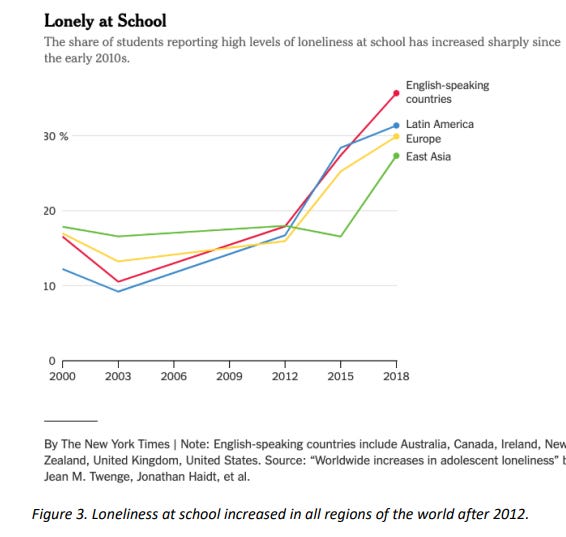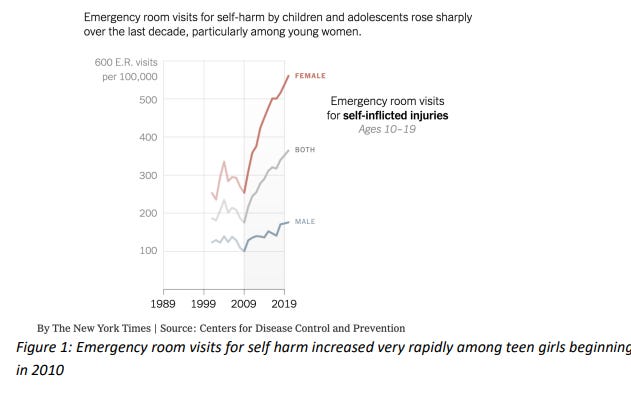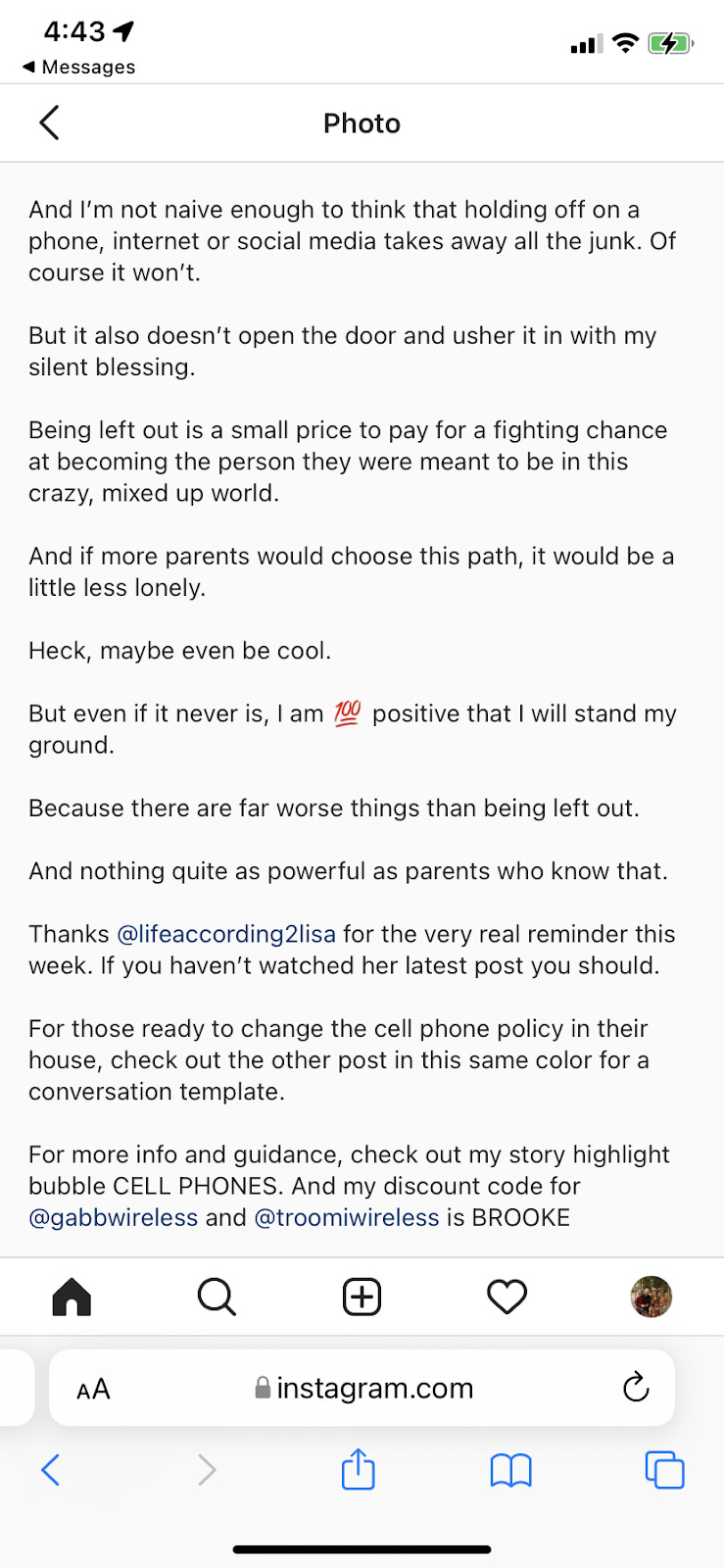2 Viral Posts About How to Manage Your Kid’s Smartphone (and Some Proposals that Might Help)
Understanding and Adapting to The Parenting Challenge of Our Time
Hello, good people! Last week I began with this statement:
“What if I told you there was one simple thing you could do to dramatically increase how well you and/or your students/kids learned?”
That simple thing was movement and exercise.
Reading over that intro again, it struck me that the exact opposite would be true about the effects of the smartphone on learning. So I’ll start there…
What if I told you there was one simple thing you could do to dramatically decrease how well you and/or your students/kids learned?
To radically decrease learning and focus, simply allow yourself or your students easy access to their smartphone while at work. There are obvious exceptions to this statement. Using the smartphone to play binaural beats will actually help you focus. Likewise, you can learn a lot by listening to audiobooks in your free time. But, broadly speaking, the smartphone is a disaster for focus and deep learning.
While common, allowing students to keep their phones accessible in class will dramatically decrease learning. Even if students want to focus, they live in a culture where they feel a massive temptation to check social media, to respond to messages from friends and parents, and to constantly seek distraction. As Taewoo Kim, chief AI engineer at One Smart Lab, put it, "You can't put your face in a device and expect to develop a long-term attention span.” I’d take that a step further. You can’t let an entire campus of students keep a smartphone in their pocket and expect them to focus.
We’ve Barely Scratched the Surface
There are even more serious reasons to be skeptical about smartphone norms, however. Smartphone addiction will make your kids less happy, less likely to move, less likely to read books, less likely to have their values formed by people they actually know, less interested in non-virtual activities, more anxious, more likely to feel lonely, and more likely to harm themselves.
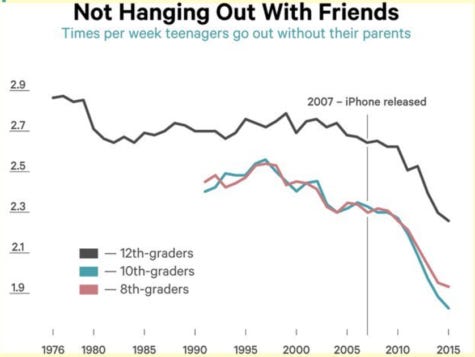
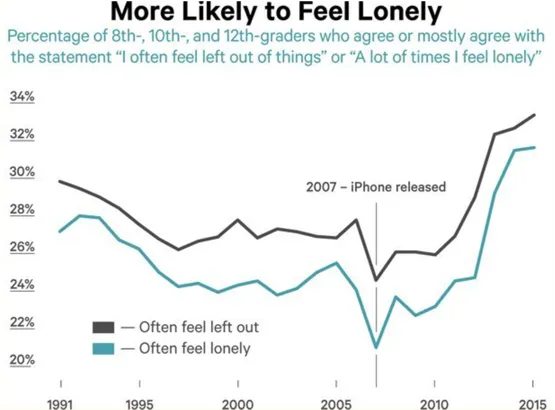
But you didn’t really need this evidence, did you? We all intuitively sense that the typical smartphone norms that proliferate today have had a disastrous effect on our culture and the development of younger generations. Our culture has not adapted well to these infinite devices. And our current norms create a toxic social pressure that pulls parents and schools to do what everyone else is doing—to give nine-year-olds smartphones and demand that schools allow smartphone use throughout the school day. We need to re-norm so that more parents are empowered to do what they know is best, rather than what society indicates is normal.
To help with that, I want to share a couple of amazing social media posts that speak to the importance of questioning smartphone norms. The irony is not lost on me.
Won’t Kids Feel Left Out if They Don’t Have a Smartphone
First, an Instagram post from writer, speaker, and educator Brooke Romney in response to the question: Won’t my kids feel left out if I don’t get them a smartphone? She writes:
All of this is spot on, but the most essential idea, here, is that the fear of being “left out” creates a vicious cycle. If more parents would just have the courage to say no until high-school, then the pressure to give kids a smartphone earlier than you’d like would shrink dramatically. AND if schools would only step up and advise parents to delay giving their children a smartphone until high school, then many more parents would feel empowered to take that vital step.
Waiting until high-school may sound drastic, but it is typical among a vast number of tech moguls such as Steve Jobs, Tim Cook, and Bill Gates who put “drastic” limits on iPads, smartphones, and social media. For example, an inc.com article explained that:
“… Bill Gates said he didn't let any of his children get their own phone until they were 14 years old.
That's right: His kids, now 20, 17, and 14, weren't allowed to have smart phones until they were high school age.
Gates is joined in this assessment by James Steyer, CEO of Common Sense Media, a nonprofit that reviews products and content for families. In the Steyer household, kids have to be in high school before they can get a phone — after demonstrating they can exercise restraint and understand "the value of face-to-face communication."
Many parents will want to give their kid a phone before high-school for basic communication. Instead of a smartphone, choose a call and text-only, internet free phone. A good resource for that here.
Even Good Students Struggle With an Infinite Device
Now to a Facebook post from Chris Cochran, an Assistant Principal in Bentonville, Arkansas:
"Parents. I am an assistant principal in a middle school (grades 6-8)...
I can’t begin to describe how much time I spend every day dealing with issues that stem from unsupervised cellphone usage by our students. In situations where I have to search a student's cellphone I often get sick to my stomach at what I find (highly inappropriate photos, videos, messages, social media usage, etc). The things our students are willing to try and be a part of at such a young age gets worse and worse every year.
When I call parents to inform them of what is going on, I always ask them how often they search their kids' phones. The shock gets even worse when 90% of them say hardly ever or never. And then they get upset at me, accuse me of lying to them about their kids' roles in certain situations, or expect me to somehow fix the situation.
Parents. It is your No. 1 job as a parent to get in your kids' way at all times. Kids do not deserve privacy. You own their devices, not them. You should be having the hard conversations with them about life, relationships, their bodies, their futures, etc. It is your responsibility to provide social and emotional support, help build coping skills, and monitor their activities…
Here are 3 tips for "getting in your child’s way":
Eat dinner as a family every night and actually talk. No devices allowed. Current research suggests that parents only spend about 8 minutes a day in conversation with their kids. That’s unacceptable.
Check their devices EVERY SINGLE NIGHT…
Create opportunities for them to have experiences. Take them to do new things. See new things. Learn new things. This not only strengthens their brain development, emotional development and builds resiliency in kids, but it also strengthens your relationship with them.
And finally, do not let them take their phones into their rooms, shut their doors and disappear for hours. Nothing good ever happens on the internet behind closed doors. It is by far the most dangerous place our students go every day.
Please. Help us with this.”
What Cochran Missed
I included this last post because Cochran does a good job exposing the magnitude of the current problem and how insane our norms are. But his message to middle school parents overlooks the obvious. What he should have emphasized is that middle school kids would be much better off if they did not have a smartphone yet. Schools should be telling parents to go with a call and text-only flip phone until high school. Once in high-school, we can discuss the best way to introduce smartphones with intelligent limits.
If that sounds extreme, I’d argue that is only because we’ve allowed truly insane norms to proliferate for so long. None have researched the problems with current smartphone norms as thoroughly or explained them as well as the psychologist Dr. Jonathan Haidt. In an amazing piece for The Atlantic, Haidt called for the following changes:
“The most important change we can make to reduce the damaging effects of social media on children is to delay entry until they have passed through puberty. Congress should update the Children’s Online Privacy Protection Act, which unwisely set the age of so-called internet adulthood (the age at which companies can collect personal information from children without parental consent) at 13 back in 1998, while making little provision for effective enforcement. The age should be raised to at least 16, and companies should be held responsible for enforcing it.”
In an effort to drive forward such legislation, Haidt gave testimony to the Senate Judiciary Subcommittee on Technology, Privacy, and the Law this past May. If you want to understand this issue better, I highly recommend checking that testimony out:
https://www.judiciary.senate.gov/imo/media/doc/Haidt%20Testimony.pdf
Also, for any parents looking for evidenced based smartphone/screentime recommendations, I recommend these two resources:
An Age by Age Guide to the Smartphone
American Academy of Pediatricians: Media and Young Minds
For more smartphone guidance, I have a more extensive list of the best parenting resources here:
Thank you for reading today! Please share with anyone who you think would find this to be of value.
Have a great week! Life is too short to be normal!
Shane





